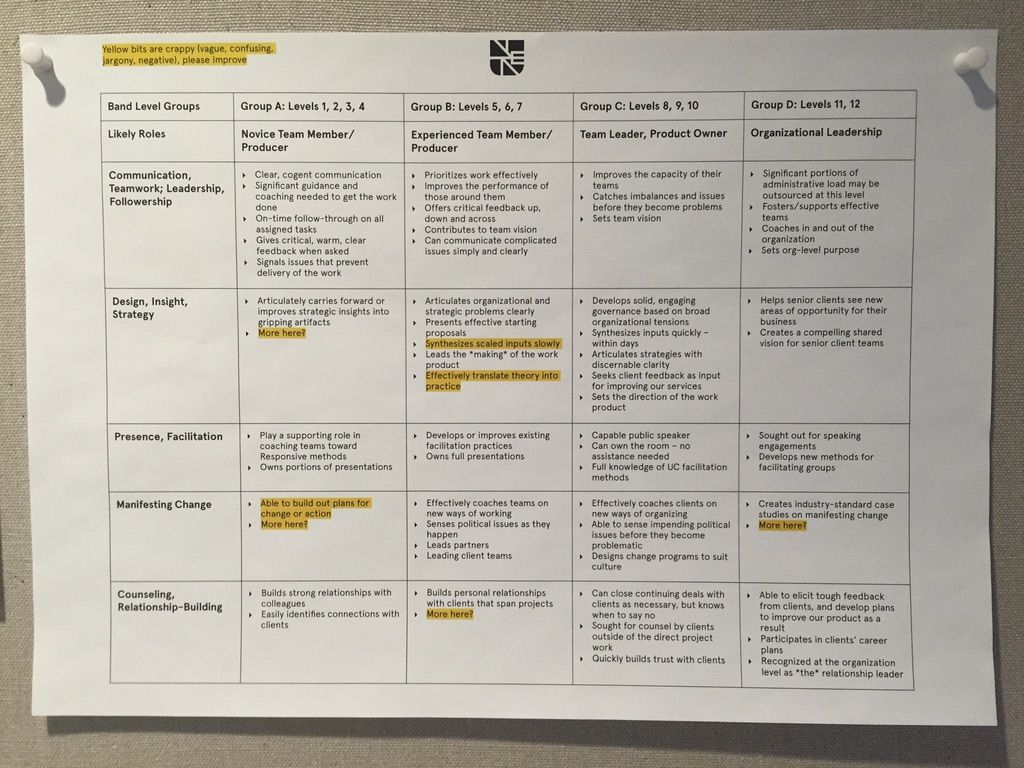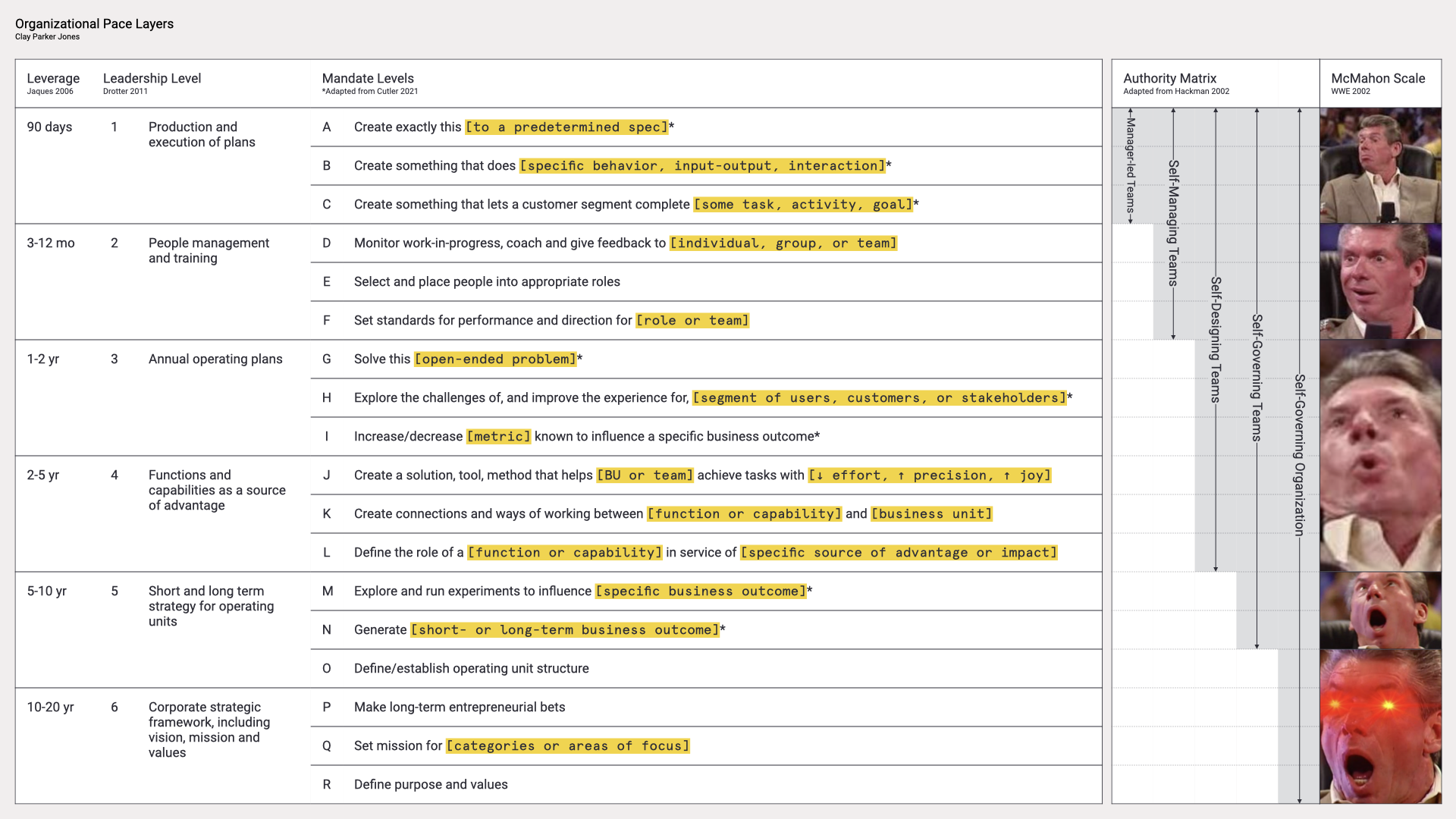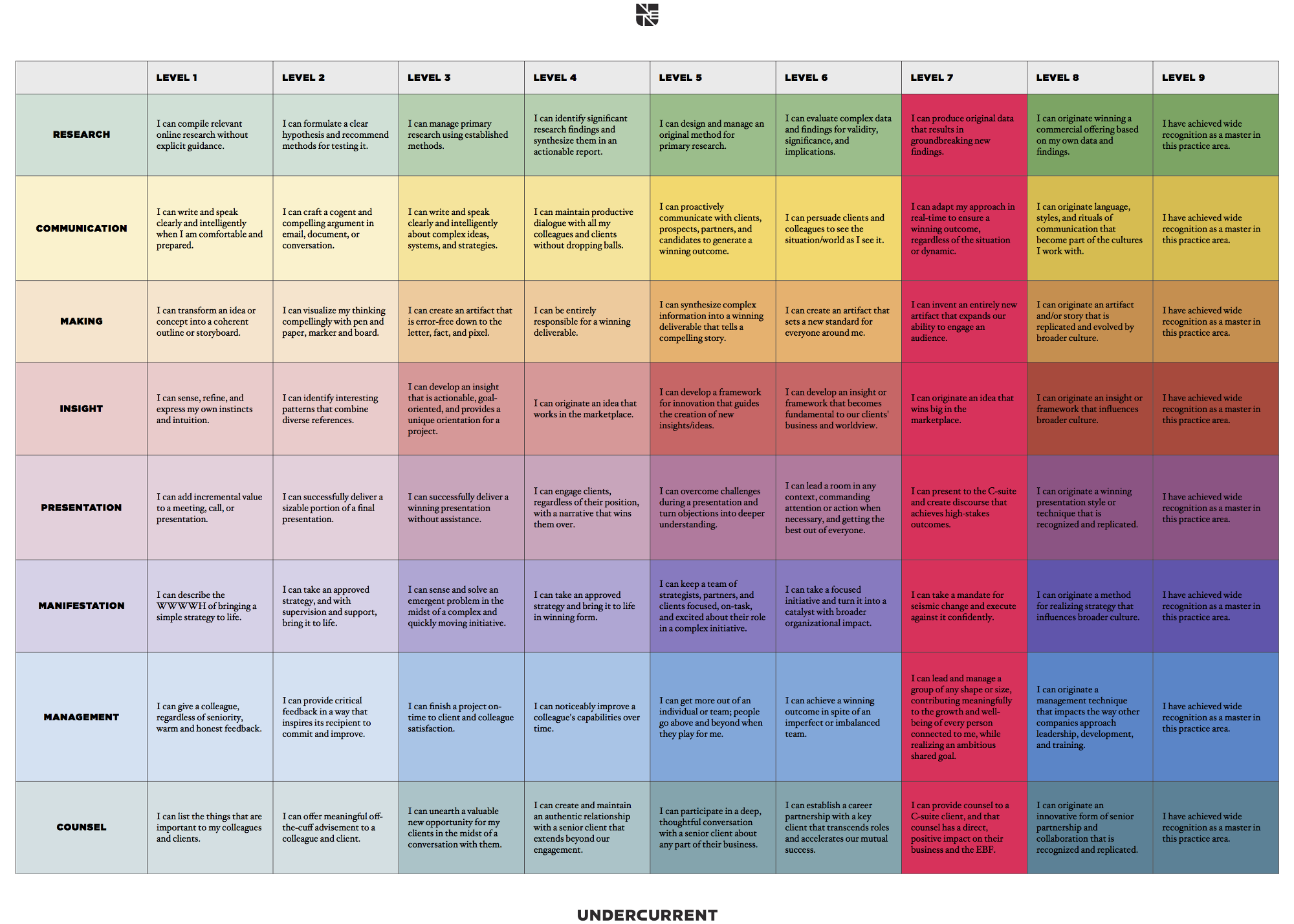Skills Maturity Matrix + Organizational Pace Layers
People love Skills-Maturity Matrices, and with good reason – they help bring clarity to next steps and learning opportunities. We can make them better by applying Pace Layers to them. Here's how.

First, the Pace Layers
Based on a few different frameworks, these 18 Organizational Pace Layers help visualize, distinguish, and discuss different kinds of work within an organization. At the top of the chart is work with leverage that only lasts a few months – things like execution of highly specific work. At the bottom of the chart is work with leverage that can last a few decades – things like establishing the purpose of the firm.
Each layer here is distinct from ideas like effort, role, or expense: it can be very easy/quick to set corporate purpose; it can take a year to create a marketing campaign according to a preset spec; you might work with very expensive vendors to produce and execute plans.

Next, the Skills Maturity Matrix
Coming up on 10 years ago, we created a Skills Maturity Matrix for Strategists at Undercurrent. It's got some flaws – insert flaws here – but I think people generally found it useful.

When we originally built the tool, the idea was that we were shooting for "Best at Undercurrent" at "Level 7" and that "best in world" was represented by "Level 9." One of the clunkiest bits of putting this thing into practice was that it wasn't really clear what was required of someone to move between pay grades. Before Undercurrent's untimely demise, we almost made a better version that included something similar to Pace Layers:

These concepts go together, right?
The skills matrix shouldn't be aligned to levels, or to arbitrary phases, but rather to generalized points of leverage for an organization.
Introducing: v0.1 Improved Strategist's Skills Maturity Matrix (powered by Organizational Pace Layers)
Now, I'll say that this is a pretty sketchy, initial look at this, but I think that it works. And the exercise of putting these things together highlights potential gaps in the original matrix and in career paths for strategists in general.
Frankly: we whiffed on important mid-leverage topics like People Management & Training, Annual Operating Plans, and Functions & Capabilities as a Source of Advantage. Sure – we flagged Management as an essential skill in the original matrix. And we do hit a few nuggets along the way:
Pace Layer I: Increase/decrease [metric] known to influence a specific business outcome
Manifestation: I can take an approved strategy and bring it to life in winning form
That one's obvious.
Pace Layer L: Define the role of [a function or capability] in service of [specific source of advantage or impact
Communication: I can persuade clients and colleagues to see the situation/world as I see it
Less obvious. A super important ingredient to building out capabilities and functions in an org is getting people to go along and do what you want them to do. You can build the best strategy capability in the world, but if nobody wants to use it, it doesn't count for much.
But there's a lot more to those pace layers that just isn't really represented in the original Undercurrent Skills Matrix. Which is a huge bummer. Annual Operating Plans (AOPs) are a core deliverable for strategy types in large corporate contexts. Same thing goes for working as a centralized service or function that drives advantage for business. There are fewer opportunities out there to set strategy for operating units, and fewer still to decide the corporate strategy framework. Cool and high-paying work, to be sure, but hard-to-find.
This certainly isn't the Undercurrent SMM's fault, but these gaps are indicative of a broader trend that I've noticed for people with marketing strategy backgrounds – unless they've had specific experience at a firm that includes marketing people in the development of AOPs – that people who ought to be in more senior leadership positions, that ought to be getting paid more, or ought to have more influence within a larger business... just don't.
So, two next steps for this to make a better, more valuable version of this matrix and others:
- Include new skills (rows) and maturity levels (cells) that chart a path through people management/training, AOP creation/activation, and advantageous functions/capabilities
- Connect with others that are building their own SMMs and see if they'd consider using this format, both to pressure-test it, and to push toward a bit of uniformity in the space

Related Articles:




Comments